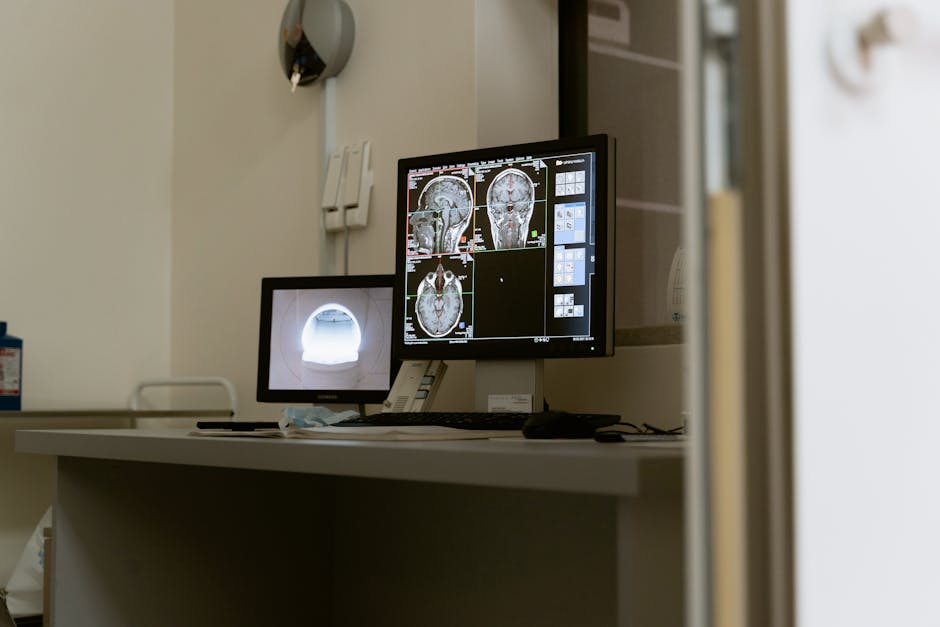Our Blog
How Early Diagnosis of Bile Duct Dilation Can Prevent Severe Complications
March 02, 2024
Understanding bile duct dilation
Bile duct dilation happens when the tubes that carry bile from the liver to the small intestine become enlarged. This can happen due to various causes, such as gallstones or inflammation. Recognizing bile duct dilation early is important to prevent severe complications. Common symptoms of bile duct dilation include jaundice, abdominal pain, fever, and itching. If left untreated, bile duct dilation can lead to serious conditions such as infections, liver damage, and even cancer. If you experience any symptoms, it’s crucial to seek medical attention promptly to prevent potential complications.

Causes of bile duct dilation
Bile duct dilation can occur due to various reasons, including gallstones, inflammation, infection, trauma, tumors, or strictures. Gallstones are the most common cause, which can block the flow of bile and lead to duct dilation. Inflammation can occur as a result of conditions like hepatitis or autoimmune diseases. Infections can also cause the bile duct to become inflamed and dilated. Additionally, trauma to the abdomen, tumors in the bile duct, or strictures from previous surgeries can also result in bile duct dilation.
Symptoms of bile duct dilation
Symptoms of bile duct dilation may include:
-
Jaundice: Yellowing of the skin and eyes
-
Dark urine: Urine that appears darker than usual
-
Light-colored stools: Stools that are lighter in color than normal
-
Itchy skin: Persistent itching, especially on the hands and feet
-
Abdominal pain: Discomfort or pain in the upper right side of the abdomen
Importance of early diagnosis
Early diagnosis of bile duct dilation is crucial for preventing severe complications. When detected early, the underlying causes can be identified and appropriate treatment can be initiated to prevent further damage. Delaying diagnosis can lead to the progression of the condition, increasing the risk of serious complications such as infection, liver damage, and even life-threatening situations. Timely detection allows for more effective and less invasive treatment options, improving the overall prognosis for individuals with bile duct dilation.
Diagnostic tests for bile duct dilation
Diagnostic tests for bile duct dilation are crucial for detecting any abnormal changes in the bile ducts. Some common diagnostic tests include:
-
Ultrasound: This non-invasive test uses sound waves to create images of the bile ducts and can help identify any blockages or dilations.
-
CT scan: A computed tomography scan can provide detailed cross-sectional images of the bile ducts, aiding in the detection of any abnormalities.
-
MRI: Magnetic resonance imaging can also produce detailed pictures of the bile ducts, helping to diagnose any dilation or obstructions.
-
Endoscopic retrograde cholangiopancreatography (ERCP): This procedure combines an endoscopy and X-rays to examine the bile ducts and can also be used to treat certain conditions.
Early detection through these diagnostic tests can help prevent severe complications associated with bile duct dilation.
Treatment options for bile duct dilation
Treatment options for bile duct dilation typically depend on the underlying cause of the condition. Here’s an overview of some common treatment options:
-
Medication to manage symptoms and reduce inflammation
-
Endoscopic procedures to widen or stent the bile duct
-
Surgical interventions to remove obstructions or repair bile ducts
-
Liver transplant for severe cases
It’s essential to consult with a healthcare professional to determine the most suitable treatment for your specific condition.Complications of untreated bile duct dilation
If left untreated, bile duct dilation can lead to serious complications, including liver damage, jaundice, infections, and gallstones. It can also cause severe abdominal pain, biliary strictures, and pancreatitis. In some cases, untreated bile duct dilation can even lead to cancer of the bile duct.
Preventive measures for bile duct dilation
Early diagnosis of bile duct dilation can help prevent severe complications. It’s important to pay attention to symptoms such as jaundice, abdominal pain, and nausea. If you experience these symptoms, it’s crucial to seek medical attention promptly to determine the underlying cause. Your doctor may recommend imaging tests such as ultrasound, CT scan, or MRI to diagnose bile duct dilation. In some cases, endoscopic retrograde cholangiopancreatography (ERCP) may be necessary to both diagnose and treat the condition. Timely diagnosis and appropriate medical intervention can prevent the progression of bile duct dilation and reduce the risk of severe complications such as infection, liver damage, and pancreatitis.
Lifestyle changes for managing bile duct dilation
Lifestyle changes can help manage bile duct dilation and prevent severe complications. Here are a few simple changes that can make a big difference:
-
Diet:
- Avoid fatty, greasy foods and opt for a diet rich in fruits, vegetables, and whole grains.
- Limit alcohol intake as it can exacerbate bile duct issues.
-
Exercise:
- Regular physical activity can improve overall health and help maintain a healthy weight, which can reduce stress on the bile ducts.
-
Hydration:
- Drink plenty of water to keep the body hydrated and aid in digestion.
Remember, it’s important to consult with a healthcare professional to create a personalized plan for managing bile duct dilation based on your specific condition.
Conclusion and summary
To sum up, early detection of bile duct dilation plays a crucial role in preventing severe complications. It allows for timely medical intervention, which can help manage the underlying causes and prevent further damage to the bile ducts. Additionally, early diagnosis can lead to more successful treatment outcomes and reduce the risk of developing complications such as infections, liver damage, and other related health issues. Regular check-ups and prompt medical attention in case of any symptoms are vital in ensuring the early detection of bile duct dilation.